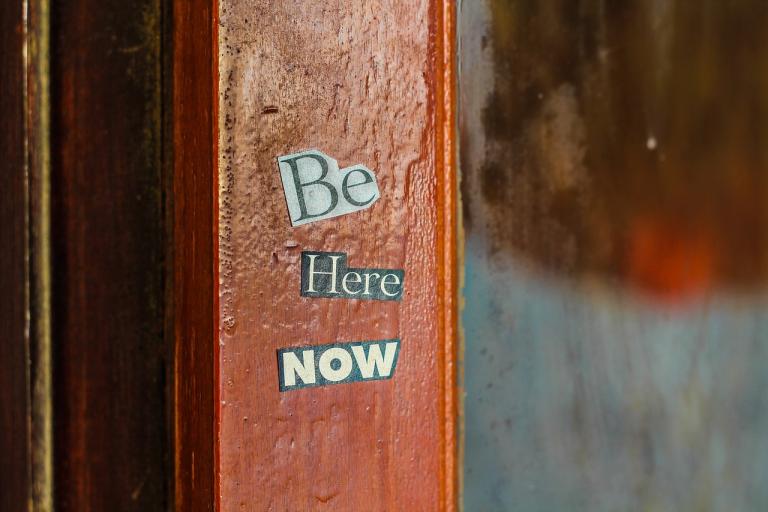
Over the past couple weeks, I’ve been thinking a lot about experience and how it relates to truth, the pursuit of truth, the Bible, and so on and so forth. I’ve been doing this, not only because my friend and colleague Keith Giles has been discussing it a lot on his blog and elsewhere, but because it’s been the topic of conversation during my weekly bonfires with my best friend and fellow author Mike Machuga. What I have found utterly fascinating is the method in which many Christians approach their own experiences and their subsequent relation to truth and the Scriptures. One particularly odd method I witnessed happened during a recent Facebook conversation in which a commenter said that if his experiences failed to line up with the Bible, then he’s always going to assume his experiences are wrong and the Bible is right. Another admitted that if trust has to be placed on either experience or Scripture, he’s going with Scripture.
Now, I’m frankly not exactly sure how to tackle such statements because, if I’m being honest, I’m not even sure what they really mean. In fact, I’m fairly convinced they are out-and-out meaningless.
Allow me to explain.
First off, no one approaches anything tabula rasa. In other words, some things are always presupposed. Assumptions are always made, whether consciously or non-consciously. Sure, there may be objective truths out there, but even then, they are always approached subjectively. Same goes with the Scriptures. There may be something concrete that we can derive from the Bible—or even the Qur’an, or the Gita, or the Vedas for that matter—but each set of writings are always approached through a lens—perhaps a cultural lens, a political lens, a socio-economic lens, or even through the lens of a tradition within a tradition (Catholic, Eastern Orthodox, Protestant, Anabaptist, and so on).
Think about it. If you’ve led a life that even somewhat resembles mine, then you were probably told certain “truths” about the universe at an age you can no longer remember. For me, it was that the Bible was the inerrant and infallible Word of God, that some humans—those who weren’t “Christian”—were going to some day find themselves consigned to eternal hell, that there was something called the Rapture that we were all anxiously (even neurotically!) awaiting, that gay people were sinners simply because they were gay, and on and on. Perhaps you weren’t taught these particular supposed truths, but I’m sure you were taught something. We all were, even if we grew up completely non-religious. Certain views about goodness. Certain things about what justice looks like. Even what love is.
Christians who don’t admit this—or won’t for fear that they may end up wrong—are simply ignoring what appears to be an inevitable reality. In a way, they are like the folks in Plato’s cave who mistake the shadow for the real thing.
So, what are we to do?
I can think of two things off the top of my head.
One, we can start admitting that no matter what, our experiences trump “the Bible.” Why? Because any and all approaches to biblical study first requires an experience of some sort. Every. Single. Time. You simply cannot get away from that. You simply cannot get away from the fact that “knowing” of any kind requires one to experience something.
The same thing could be said about all the folks who contributed to the book we call “the Bible.” Each and every writer, editor, and redactor had a lens with which they viewed things. They had cultural lenses. They had political lenses. They had theological lenses. And guess what, they didn’t all have the same lens. Any diligent studier of the Bible should acknowledge this.
Which brings me to my second word of advice: Let the Bible speak for itself on this matter. What I mean is that if we can step back and see the overarching metanarrative of the Scriptures, what we’ll likely discover is that the Bible, rather than pointing to itself as the ultimate authority, points to something else, namely Christ. Sure, as the writer of 2 Timothy says, Scripture is useful for teaching, rebuking, correcting, and training in righteousness, but the lens with which we view said Scripture is through the incarnate Word—or, rather, the “Logos”—of God.
To that end, if we then take seriously the claims made by the Bible, we’ll likely admit that it argues for a Logos who is still alive and active today. Indeed, the Christ has risen and because of this, the Holy Spirit moves and speaks and guides and advocates for such things as mercy, peace, gentleness, love, and unbridled grace. Hence, to experience this is to experience divinity. And whether we have the correct biblical language or not is, to my mind, to miss the point entirely. That is to say, the language we use to describe our experience is to point at the moon, but it isn’t the moon itself (cf. Thich Nhat Hanh’s Living Buddha, Living Christ).
So, at the end of the day, what I want to suggest is this: Trust your experiences. Be mindful of them. Be present with them. Be here now. Consciously choose to trust the One in whom we live and move and have our being (Acts 17:28). Why? Because the Holy Spirit still moves today. The Holy Spirit still speaks today. To know this is to experience it. And you know what? The exciting thing is that when we do turn to the Bible, it speaks to this same truth—the Word of God is alive; the Word of God walks among us; the Word of God can be experienced and known.
Shalom, my friends.
*If you want to help support what I do, please make sure to check out my Patreon page. Every $1 helps. And be sure to subscribe to the podcast I co-host. It’s called the Heretic Happy Hour, so you know with a name like that, it’s bound to be good 😉













